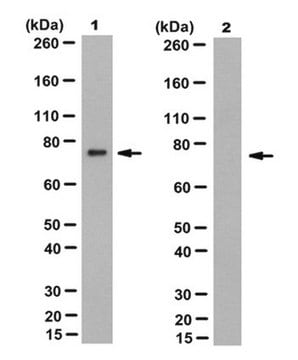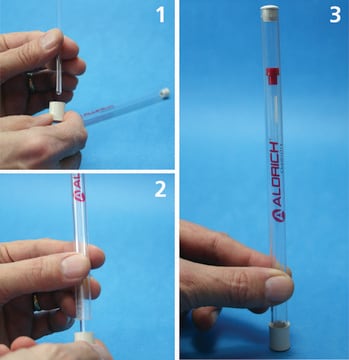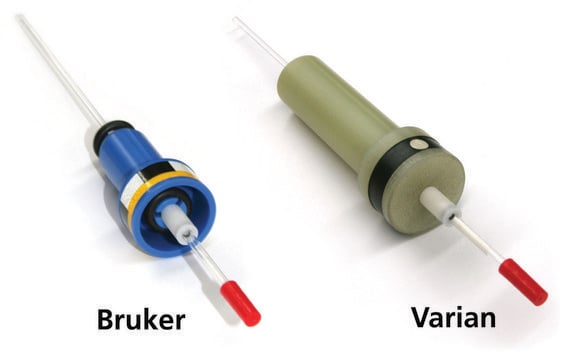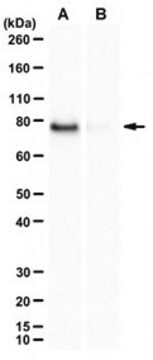MABT858
Anti-prelamin A Antibody, clone PL-1C7
clone PL-1C7, from mouse
Synonyme(s) :
LMNA
About This Item
Produits recommandés
Source biologique
mouse
Niveau de qualité
Forme d'anticorps
purified antibody
Type de produit anticorps
primary antibodies
Clone
PL-1C7, monoclonal
Espèces réactives
mouse, human
Conditionnement
antibody small pack of 25 μg
Technique(s)
ELISA: suitable
flow cytometry: suitable
immunocytochemistry: suitable
western blot: suitable
Isotype
IgG2bκ
Numéro d'accès NCBI
Numéro d'accès UniProt
Conditions d'expédition
ambient
Modification post-traductionnelle de la cible
unmodified
Informations sur le gène
human ... LMNA(4000)
Description générale
Spécificité
Immunogène
Application
Cell Structure
Flow Cytometry Analysis: A representative lot detected prelamin A in Flow Cytometry applications (Casasola, A., et. al. (2016). Nucleus. 7(1):84-102).
Western Blotting Analysis: A representative lot detected prelamin A in Western Blotting applications (Casasola, A., et. al. (2016). Nucleus. 7(1):84-102).
Immunocytochemistry Analysis: 1 µg/mL from a representative lot detected prelamin A in C2C12 cells with Farnesyl transferase inhibitor Lonafarnib (Courtesy of Fred Hutchinson Cancer Research Center, Seattle, Washington USA).
ELISA Analysis: A representative lot detected prelamin A in ELISA applications (Casasola, A., et. al. (2016). Nucleus. 7(1):84-102).
Immunocytochemistry Analysis: A representative lot detected prelamin A in Immunocytochemistry applications (Casasola, A., et. al. (2016). Nucleus. 7(1):84-102).
Qualité
Western Blotting Analysis: 2 µg/mL of this antibody detected prelamin A in C2C12 cell lysate.
Description de la cible
Forme physique
Stockage et stabilité
Autres remarques
Clause de non-responsabilité
Vous ne trouvez pas le bon produit ?
Essayez notre Outil de sélection de produits.
En option
Code de la classe de stockage
12 - Non Combustible Liquids
Classe de danger pour l'eau (WGK)
WGK 1
Point d'éclair (°F)
does not flash
Point d'éclair (°C)
does not flash
Certificats d'analyse (COA)
Recherchez un Certificats d'analyse (COA) en saisissant le numéro de lot du produit. Les numéros de lot figurent sur l'étiquette du produit après les mots "Lot" ou "Batch".
Déjà en possession de ce produit ?
Retrouvez la documentation relative aux produits que vous avez récemment achetés dans la Bibliothèque de documents.
Notre équipe de scientifiques dispose d'une expérience dans tous les secteurs de la recherche, notamment en sciences de la vie, science des matériaux, synthèse chimique, chromatographie, analyse et dans de nombreux autres domaines..
Contacter notre Service technique








